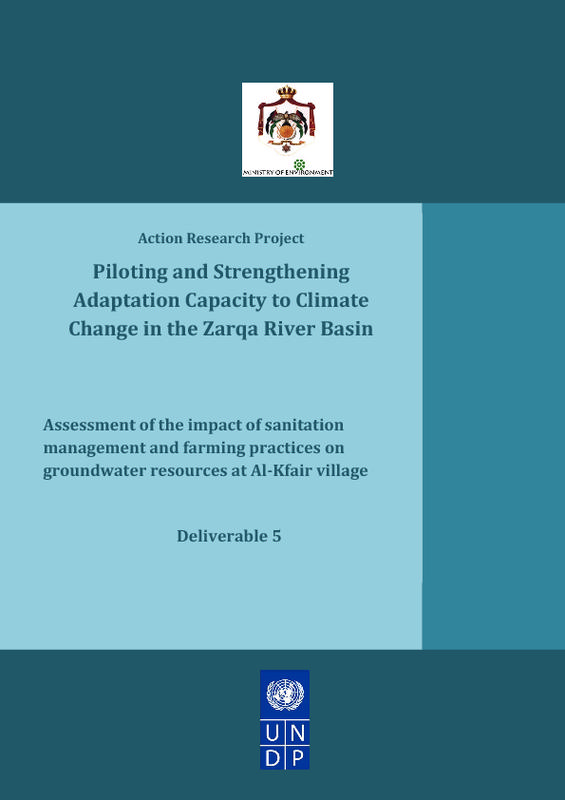The SDG Fund is operationally closed. This site is alive for knowledge and dissemination purposes.
Warning: This website is closed. Be aware of phishing or social engineering fraudulent requests of payments or certificates. Explore our programme areas.
Please visit jointsdgfund.org
Publication
Piloting and strengthening adaptation capacity to climate change in the Zarqa river basin in Jordan
Published by: UNDP

About
Sediments and nutrients carried by the agricultural runoff are identified as the major source of Non-Point Source (NPS) pollution particularly in agricultural watersheds, such as
Al-Kfair. Agricultural practices such as tilling make soil available to flow overland with storm waters, causing soil erosion which reduces crop productivity and adds sediments which act as a carrier and a storage agent for other kinds of pollutants such as phosphorous, nitrogen and organic compounds.
This study aims to model the hydrological processes and assess the impact of land management practices on water quality and quantity of the Al-Kfair watershed using the Annualized Agricultural Non-Point Source Pollutant Loading Model. It identifies areas that are susceptible to soil erosion within the watershed and assesses the agricultural nutrient loadings that are responsible for water quality degradation.
Al-Kfair. Agricultural practices such as tilling make soil available to flow overland with storm waters, causing soil erosion which reduces crop productivity and adds sediments which act as a carrier and a storage agent for other kinds of pollutants such as phosphorous, nitrogen and organic compounds.
This study aims to model the hydrological processes and assess the impact of land management practices on water quality and quantity of the Al-Kfair watershed using the Annualized Agricultural Non-Point Source Pollutant Loading Model. It identifies areas that are susceptible to soil erosion within the watershed and assesses the agricultural nutrient loadings that are responsible for water quality degradation.
View online / download
General Information
| SDGs | |
|---|---|
| Thematic Area | Sustainability |

